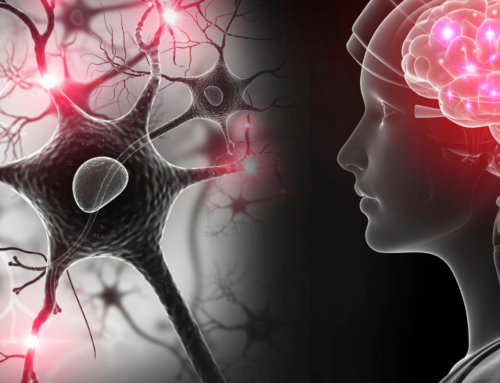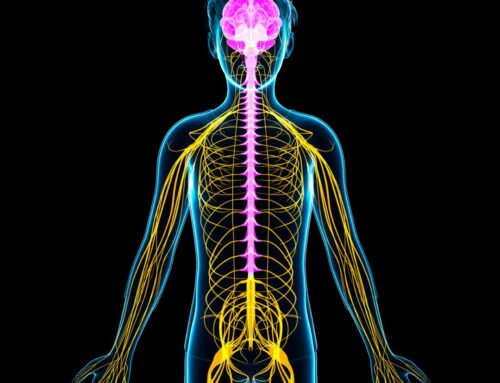Concussions, often referred to as the “invisible injury,” can have profound effects on both the physical and cognitive well-being of an individual. While the initial impact might seem minor, the repercussions can be long-lasting and, in some cases, life-altering. As awareness about the seriousness of concussions grows, so does the need for a comprehensive approach to recovery. In this blog post, we’ll delve into the immediate actions one should take post-concussion, the importance of rest and recovery, and the often-overlooked role of chiropractic care in the healing process. With insights from Dr. Horseman at The Brain Therapy Clinic, we aim to provide a holistic view of concussion management and the path to optimal recovery.
Immediate Actions to Take After a Concussion
- Seek Medical Attention: The first and most important step after a suspected concussion is to seek medical attention. Even if symptoms seem mild, it’s crucial to be evaluated by a healthcare professional. Concussions can have serious effects that may not be immediately apparent.
- Monitor Symptoms: Keep a close eye on symptoms in the hours and days following the injury. If symptoms worsen, seek immediate medical attention. This could indicate a more serious injury.
- Avoid Further Injury: Until a healthcare professional gives the all-clear, avoid activities that could lead to another head injury. This includes sports, but also activities like riding a bike or climbing on a playground
Rest and Recovery After a Concussion
- Physical Rest: Physical rest is crucial after a concussion. This means avoiding sports and strenuous activities until symptoms have completely resolved. The length of this rest period can vary, but it’s not uncommon for it to last a week or two.
- Cognitive Rest: Cognitive rest is just as important as physical rest. This means taking a break from activities that require concentration or mental effort. This includes things like schoolwork, reading, and screen time. Again, the length of this rest period can vary, but it’s typically in line with the physical rest period.
- Gradual Return to Normal Activities: Once symptoms have improved, normal activities can be gradually resumed. However, if symptoms return during this process, it’s a sign that the brain still needs more time to heal. This gradual return can often take another few weeks.
- Follow-Up Care: Regular follow-up appointments with a healthcare provider are important to monitor recovery and determine when it’s safe to return to all normal activities, including sports. This can sometimes be a month or more after the initial injury.
- Long-Term Recovery: In some cases, symptoms may persist for months or longer, a condition known as post-concussion syndrome. This requires ongoing medical care and may involve treatments like physical therapy, occupational therapy, or cognitive behavioural therapy.
Remember, every concussion is unique and recovery will look different for everyone. It’s important to listen to your body and give it the time it needs to heal.
The Role of Chiropractic Care in Concussion Management
- Neck and Spinal Assessment: After a concussion, it’s not just the brain that may be affected. The neck and spine can also sustain injuries during the same event. Dr. Horseman at The Brain Therapy Clinic can provide a thorough assessment to identify any misalignments or injuries.
- Chiropractic Adjustments: Gentle chiropractic adjustments can help alleviate pain and discomfort that may arise after a concussion. These adjustments can also improve spinal function, which can aid in overall recovery.
- Recommendations for Recovery: Chiropractors are trained to provide holistic care. Dr. Horseman can offer recommendations on exercises, stretches, and lifestyle changes that can support the healing process.
- Complementary Therapies: The Brain Therapy Clinic offers a range of complementary therapies that can support concussion recovery. This includes massage therapy, acupuncture, and other modalities that can help reduce symptoms and promote healing.
- Patient Education: Understanding the nature of a concussion and the recovery process is crucial. Dr. Horseman prioritizes patient education, ensuring that each individual understands their injury and the steps they need to take for optimal recovery.
While concussions are serious injuries that require immediate attention and a comprehensive recovery plan, there are many resources available to support healing. Chiropractic care, as offered by Dr. Horseman at The Brain Therapy Clinic, can play a pivotal role in ensuring a smooth and thorough recovery. Always prioritize your health and seek out the best care possible after any injury.
Dr. Horseman at the Brain Therapy Clinic has over 30 years of experience in successfully treating patients with post-concussion therapy. Book a free consultation today to learn more about the treatment plan specific to you.








Leave A Comment